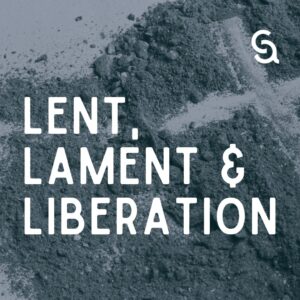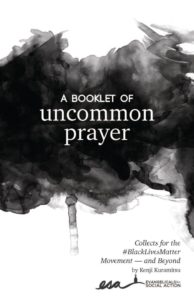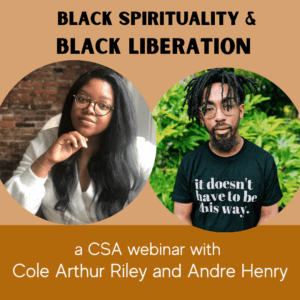 “From ashes you come, to ashes you will return.”
“From ashes you come, to ashes you will return.”
These words, uttered by priests and pastors during the imposition of ashes on Ash Wednesday, have never felt so viscerally disquieting to me as this year. Four weeks ago, while staying with my in-laws on a weekend visit, we awoke in the middle of the night to a fire. We fled the burning house in the thick of darkness with only the clothes on our backs.
I can still smell the ash in the air. My mother- and father-in-law, and three of their children still living at home, lost everything. The fire destroyed much of their home and all their belongings. What wasn’t damaged by flames is covered in soot, water, and toxic smoke, unable to be used.
In this ash, in this destruction, where is our hope?
Since the fire, I’ve been asking myself, “Where did I feel God that night?” I think God was before and after it, enfolding us like a mother hen, holding us close in the aftermath. A dozen things could have created a more tragic outcome–a later bedtime, a quieter dog, a healthier December, a forgotten chore–any of these small changes could have resulted in death.
I am not grateful my family has lost their home and all their belongings. I don’t believe God is in the suffering, the displacement, the losses of creature comforts and familiarity that feels like home. Yet I believe God is in this somehow, and is reminding us, as in Lent, that God is our home, our refuge, our hiding place. God is our hope. In the aftershock the next day, smoke weighing heavy on our clothes, shoe-less, displaced, we held one another and repeated over and over again our mantras of gratitude: “Thank God you’re okay.” “Everything we lost can be replaced.” “We are safe.” All we could feel was gratitude. We have the things that cannot be replaced–one another.
Lent is about this kind of loss.
Lent is about taking time to lose the things we can’t take with us as we remember what we cannot afford to lose. Lent frees us to remember our frailty and finitude, our reliance upon all the things that have taken God’s place as our home, and our need for God’s grace to find our way towards a future free from sorrow. Like a house fire in the middle of the night, Lent frees us to recognize what is irreplaceable, to gain a deeper gratitude for eternal things. We do not relish the losses. I do not celebrate the loss of a home, a place of safety, and everyday necessities that my family is experiencing. Yet I am finding God’s graces in this loss freeing us all to love more lavishly. To give more generously. To thank God endlessly, in gratitude for what we have gained.
We grieve, we lament, we cry out–but we are saved. We are healed even in the midst of our losses.
Lent is a call to lament.
Lent is typically characterized by a call to lament. During Lent, we take time to slow down and notice the ways in which our personal and collective sin has birthed death within us. We notice it and reject it. It is not lost on me that Lent and Black History Month overlap. As a white, suburban-dwelling, middle-class woman, I am reminded of the many privileges and benefits I receive by virtue of my race. Reflecting on Black history month during this Lent, we can lament our personal and institutional participation in oppression and racism and ask, “How might our repentance and lamenting lead us to liberation?” Further, “How can those on the margins help us envision the liberative future of shalom that God promises us, even while we lament the current state of things?” And “How might I lay aside my own pleasures and conveniences this Lent and take up my cross as a disciple of Jesus on behalf of my Black friends and neighbors?”
Many of my daily comforts today are the direct result of the ways white privilege paves my paths. I have gained much through the accidental benefits inherited from a legacy of white supremacy. The sins we repent of in Lent are not merely the personal ones–they are also the collective, systematic, and structural sins that plague our nation and our world. During Lent, we take time to slow down and notice the ways in which both personal and systemic sins have birthed death within us. The season of Lent is an opportunity for repentance, for reflection on our shared humanity, our callousness, and our brutality towards one another. We take time to see it, to repent of it, and to reject it.
Lament is for liberation.
When we let the ways of death die, we live. The apostle Paul reminds us, “For we know that our old self was crucified with him so that the body ruled by sin might be done away with, that we should no longer be slaves to sin—because anyone who has died has been set free from sin” (Rom. 6:6-7). Might choosing to grieve and repent and face loss this Lent point us toward the liberative future God imagines for us all? We can find new freedom even as we mourn. We can find God’s liberation in God’s realized vision of shalom.
Renewal, resurrection, restoration, and reconciliation cannot happen without death to the old order of things, death to both the personal and systemic ways we have participated in a system of domination that rewards the majority and pushes the rest to the margin. We cannot be freed from what has enslaved us until we can name it, call it to the forefront, confess it, and declare we will have nothing to do with it any longer. This is our path to freedom. This is the goal of lament, to free us from the violence and death we keep participating in. Through our lamenting we are freed to experience the Kingdom of God in new ways. Through our lamenting this Lent, we can be set free to a future filled with the hope of the resurrection. As the old things pass away, we find freedom and new life.
Rebuilding
It will take more than the 40 days of Lent for my family to heal, recover, and rebuild all that has been lost. The ash confronts us this Lent. Yet even so, in the words of my mother-in-law, our “gratitude is full and outweighs the strife…my faith in the world with all our crazy differences, extremes, faiths, and diversities is restored in the fact that when we need each other–we put it aside, and love each other and help. I am changed by this.”
May God’s lavish grace fill us all this Lent, even with, and because of, all we have lost.
 Heidi Weaver-Smith is a nonprofit leader and development consultant living in Columbus, OH with her husband and two young daughters. She writes, speaks, and works on various topics of justice including missions that serve LGBTQIA+ individuals, low-income families, and racial justice initiatives. She received her MA in Theology from Fuller Theological Seminary and serves as the Executive Director of Little Bottoms Free Store, a faith-based non-profit working to address the social determinants of health that disproportionately impact families in Columbus’ most under-resourced neighborhoods. Heidi is also the founder of LOVEboldly, a nonprofit that exists to create and develop spaces where LGBTQIA+ people can flourish in Christianity.
Heidi Weaver-Smith is a nonprofit leader and development consultant living in Columbus, OH with her husband and two young daughters. She writes, speaks, and works on various topics of justice including missions that serve LGBTQIA+ individuals, low-income families, and racial justice initiatives. She received her MA in Theology from Fuller Theological Seminary and serves as the Executive Director of Little Bottoms Free Store, a faith-based non-profit working to address the social determinants of health that disproportionately impact families in Columbus’ most under-resourced neighborhoods. Heidi is also the founder of LOVEboldly, a nonprofit that exists to create and develop spaces where LGBTQIA+ people can flourish in Christianity.


